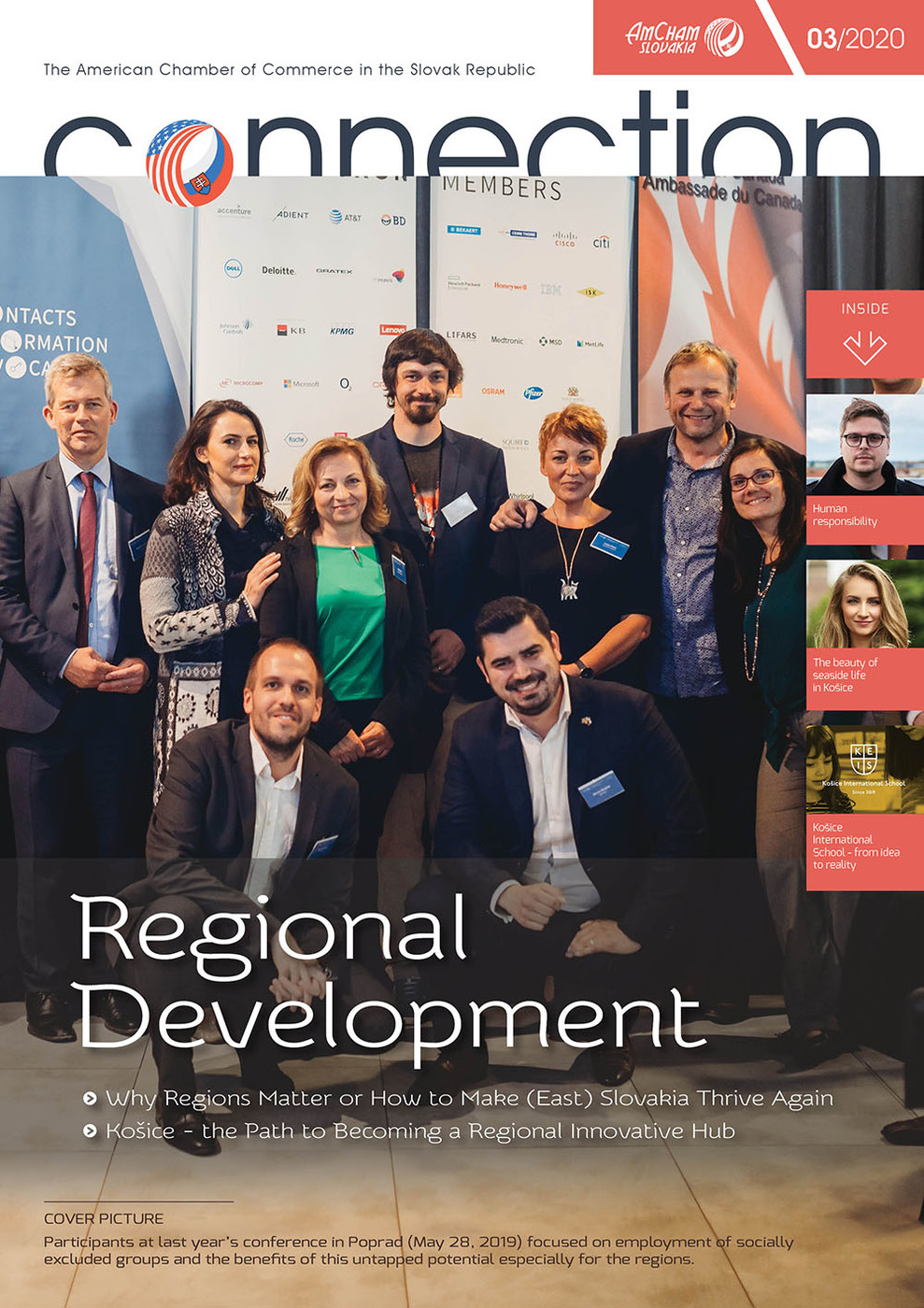The Coronavirus crisis showed something really important. The virus doesn’t make any difference between races, wealth, job positions, or nations. So we desperately need to be able to come together and collaborate as one. We need global leadership to address global issues, but not as one single power hub, but as a sophisticated collaborative network of leadership on all levels. Something which Alan Watkins and Nick Dalton call planet-based leadership. Not only governments but also businesses should embrace this approach which goes beyond the scope of the company and seeks the impact on society and the planet as a whole.
Many challenges await us. Climate change with all the collateral events, social inequality, AI, and digital revolution are the biggest issues the world will be dealing with very soon. Are the cities and regions ready to deal with it and take over the responsibility or will we be surprised by external factors?
The world needs ideas that can help to navigate and steer through the clouds of complexity towards a sustainable future. In the global world it no longer matters, where in the network these ideas are coming from, what matters is their relevance. Below, I offer five factors which, in my opinion, play an important role in any development, not only for the city or region but also in business or any other organization.
Vision
If the stakes are high and the journey is long, we should know why and where we are heading. We should also get our values right.
In Slovakia, we suffer from a lack of vision. The GDP growth and economical measures are no longer sufficient instruments and arguments. Their only advantage is easy and clear quantification. We should seek for more holistic and inclusive concepts and visions. The example of New Zealand or Iceland favoring wellbeing over GDP growth could be very relevant in challenging times.
Leadership
To be able to deal with the scope of challenges and complex external factors, we need to create and lead cross-sectorial fellowships. These networks should be matured and developed enough to understand that there is a world beyond their own individual goals. There is always more than one solution to a problem and a problem evolves in time and the solution has to do the same. Such leadership seeks balance between profit and the planet or the wellbeing of all.
Trust
The best leadership is based on trust instead of imposing power. Abusing power, incompetence, self-centric ignorance, constantly changing opinions, popular solutions and zero interest in people’s real problems lead to organizational collapse. Therefore, we have to continuously balance values, seek understanding, think of common good, and network health. Our cities and regions desperately need to build trust between all stakeholders far beyond the basic competence levels and geographical borders.
Collaboration
Without true collaboration, nothing can be achieved. Cities and regions are not exceptions. The multistakeholder environment asks for collaboration tools and platforms which promote uniting for the sake of achieving a common vision. In our reality, the collaboration mindset is still in “what I can gain” mode rather than “what we can achieve together” mode and this should change if we want to be a relevant partner for the world.
Responsibility
We might be a small city in a small region, in the middle of Europe, but we shouldn’t forget, that we are the lucky ones from the very privileged part of the world. We should be daring to bring the best ideas to it, rather than expecting something from it.
It is our role as humans to take responsibility for all the domains we intervened in and conquered. We should be able to find a sustainable and resilient way to live fulfilled and prosperous lives.
In conclusion, I would like to point out that responsibility should be the common approach for all other areas. Human responsibility is the main theme of the Art and Tech Days festival and conference in November of this year where I hope we all meet and also find the common ground with AmCham to be able to discuss this relevant topic in more depth.
Human responsibility
The Covid-19 outbreak truly revealed the ups and downs of the global world. It is a world of volatile, uncertain, complex, and ambiguous problems constantly evolving as multidimensional with numerous stakeholders, multiple causes and effects, and no single solution reality. For the past few weeks, we found ourselves in the no future scenario. It was a very strong moment of despair, silence, and emptiness very well illustrated in the streets of our cities.
Regional Development
- Human responsibility
- Local innovation ecosystem of the future
- The future of local investing
- The beauty of seaside life in Košice
- City of Prešov: Vision of a successful ECOC 2026 candidacy
- Why regions matter or how to make (East) Slovakia thrive again
- The path to vibrant city ecosystems
- Despite the crisis a historic chance for Slovakia
- Košice International School - from idea to reality
- Covid crisis as an accelerator of innovations
- Making the connections between business and life
- The HORECA sector needs our help



Follow us